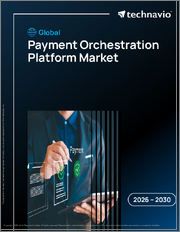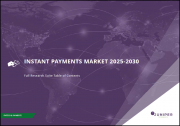
|
시장보고서
상품코드
1528194
POS 결제 시장 평가 : 컴포넌트별, 단말 유형별, 최종 사용자별, 지역별, 기회, 예측(2017-2031년)POS Payment Market Assessment, By Component, By Terminal Type, By End-user, By Region, Opportunities and Forecast, 2017-2031F |
||||||
세계 POS 결제 시장 규모는 2023년 1,014억 8,000만 달러에서 2031년 1,934억 6,000만 달러에 이를 것으로 예측되며, 2024-2031년 예측 기간에 CAGR로 8.40%의 성장이 전망된다 합니다.
POS 시스템은 기업이 판매 시점에서 거래를 처리하는 데 사용하는 컴퓨터화된 장치입니다. POS는 고객이 구매한 상품과 서비스에 대해 결제를 하는 장소와 시간입니다. 일반적으로 POS 기계는 하드웨어와 소프트웨어를 결합할 수 있습니다. 여기에는 카드 리더, 캐시 레지스터, 바코드 스캐너와 같은 주변 장치가 추가된 컴퓨터 및 태블릿이 포함될 수 있습니다. 이 기계는 정산 프로세스를 가속화하고 거래의 효율성을 높이는 동시에 청구 시스템의 정확성을 향상시킵니다. 경우에 따라 인벤토리 관리 시스템에서 사용할 수 있으며, 이는 기업이 실시간으로 재고 수준과 매출을 추적하고 정보를 기반으로 구매 결정을 가능하게하며 최적의 가격 전략을 수립하며 종합적입니다. 고객 경험을 향상시킬 수 있습니다.
저렴한 무선 통신 기술에 대한 요구가 증가함에 따라 시장 수요가 증가하고 있습니다. 무선 기술은 운송업자와 레스토랑과 같은 다양한 산업을 단순화하고 유연성을 제공합니다. 소매 및 호텔 산업에서는 POS 단말기를 사용하여 결제 처리를 실시하고 회계, 매출 모니터링, 재고 관리를 실시했습니다.
현대적인 드라이브 스루의 발전은 POS 단말기의 성장에 크게 기여하고 있습니다. 다양한 기업의 경우 POS 시스템은 드라이브 스루 라인을 주문을 제공하는 주방 및 백 오피스 업무와 통합하기 위해 설치되어 왔습니다. 예를 들어, Chipotle, Starbucks, Panera와 같은 고속 캐주얼 체인의 일부 상점에서는 드라이브 스루 구성 요소가 추가되었습니다. 이와 같이 모바일 POS 단말기가 새롭게 보급됨으로써 새로운 시장의 길이 열립니다. 이러한 시스템의 ROI 잠재성은 세계 POS 결제 시장을 뒷받침하고 있습니다. 또한 고객과 직원 관리, 재고 추적, 태블릿을 통한 매장 판매 및 온라인 판매 통합에 대한 요구가 커짐에 따라 제품 채택이 증가하고 있습니다.
예를 들어 2023년 12월, CaixaBank와 ONCE는 Comercia Global Payments를 통해 시각장애인에게 Android 기술에 의한 터치식 POS 단말기의 기능을 제공하는 새로운 기능을 구현했습니다. 이 접근법은 터치 POS 단말기의 화면에서 숫자를 읽을 수 없는 사람들의 자율성을 향상시키고 결제를 다른 사람에게 의존하는 것을 최소화합니다.
신속한 결제 프로세스에 대한 수요 증가
POS 머신의 도입은 가맹점과 소비자 모두에게 많은 이익을 가져왔고, 기업의 거래 방법에 혁명을 가져왔습니다. 예를 들어, 이 시스템을 통해 가맹점은 신속한 거래를 가능하게 하고 고객의 대기 시간을 대폭 단축하고 효율적으로 처리할 수 있습니다. 또한 신용카드, 직불카드, Paytm, PhonePe 등의 앱을 이용한 모바일 결제, 때로는 암호화폐 등 다양한 결제 수단을 제공합니다.
POS 기계는 결제 처리에 그치지 않고 판매를 더 정확하게 기록하고 재고를 효과적으로 관리합니다. 이렇게 함으로써 기업은 판매 동향이나 창고의 재고 상황을 파악하고, 낭비나 품절에 의한 낭비적인 지출을 피하기 위해, 보충이나 가격 설정에 관한 정보에 근거한 의사 결정을 할 수 있습니다. 미국에서의 POS 머신의 활용은 결제 프로세스의 효율성, 편의성, 안전성과 함께 기업이나 고객이 정체없이 거래를 실행할 수 있도록 지원하고 있습니다.
예를 들어 2022년 2월, 대기업 테크 기업의 Apple은 iPhone에 Tap to Pay를 도입하고, 미국 내의 가맹점이 iPhone을 탭함으로써 비접촉 직불카드나 신용카드, Apple Pay, 기타 e월렛 옵션에서의 결제를 안전하게 접수할 수 있도록 했습니다. Tap to Pay는 NFC 기술을 활용하며 추가 하드웨어가 필요하지 않습니다.
이 보고서는 세계 POS 결제 시장에 대한 조사 분석을 통해 시장 규모와 예측, 시장 역학, 주요 기업 현황과 전망 등의 정보를 제공합니다.
목차
제1장 프로젝트의 범위와 정의
제2장 조사 방법
제3장 주요 요약
제4장 고객의 목소리
- 제품 및 시장 정보
- 브랜드인지 방식
- 구매 결정에서 고려되는 요소
- 프라이버시와 규제 고려
제5장 세계의 POS 결제 시장 전망(2017-2031년)
- 시장 규모의 분석과 예측
- 금액
- 시장 점유율 분석과 예측
- 컴포넌트별
- 단말 유형별
- 최종 사용자별
- 지역별
- 시장 점유율 분석 : 기업별(금액)(상위 5개사 및 기타 - 2023년)
- 시장 맵 분석(2023년)
- 컴포넌트별
- 단말 유형별
- 최종 사용자별
- 지역별
제6장 북미의 POS 결제 시장 전망(2017-2031년)
- 시장 규모의 분석과 예측
- 금액
- 시장 점유율 분석과 예측
- 컴포넌트별
- 단말 유형별
- 최종 사용자별
- 점유율 : 국가별
- 시장 평가: 국가별
- 미국의 POS 결제 시장 전망(2017-2031년)
- 캐나다
- 멕시코
제7장 유럽의 POS 결제 시장 전망(2017-2031년)
- 독일
- 프랑스
- 이탈리아
- 영국
- 러시아
- 네덜란드
- 스페인
- 터키
- 폴란드
제8장 아시아태평양의 POS결제시장 전망(2017-2031년)
- 인도
- 중국
- 일본
- 호주
- 베트남
- 한국
- 인도네시아
- 필리핀
제9장 남미의 POS 결제 시장 전망(2017-2031년)
- 브라질
- 아르헨티나
제10장 중동 및 아프리카의 POS 결제 시장 전망(2017-2031년)
- 사우디아라비아
- 아랍에미리트(UAE)
- 남아프리카
제11장 수급 분석
제12장 밸류체인 분석
제13장 Porter's Five Forces 분석
제14장 PESTLE 분석
제15장 터미널의 가격 분석
제16장 시장 역학
- 시장 성장 촉진요인
- 시장의 과제
제17장 시장 동향과 발전
제18장 사례 연구
제19장 경쟁 구도
- 마켓 리더 상위 5개사의 경쟁 매트릭스
- 상위 5개사의 SWOT 분석
- 주요 기업 상위 10개사의 정세
- Acumera, Inc.
- ACRELEC.
- AURES Group
- HM Electronics
- Hewlett Packard Development LP
- NCR Corporation
- Oracle Corporation
- PAYABL CY LimitedPosiflex Technology
- PAX Technology Limited
- Toshiba Corp.
제20장 전략적 추천
제21장 당사에 대하여 면책사항
JHS 24.08.14Global POS payment market is projected to witness a CAGR of 8.40% during the forecast period 2024-2031, growing from USD 101.48 billion in 2023 to USD 193.46 billion in 2031.
A point-of-sale system is a computerized device used by businesses to process transactions at the point of sale. A point of sale is referred as a place and time where customers make payment for goods and services purchased. Usually, POS machines can combine hardware and software. This may include a computer or tablet with an added card reader, cash register, barcode scanner, and other peripherals. The machine expedites the checkout process and enhance transaction efficacy, while improving the accuracy of billing system. In some cases, they might be used in inventory management systems, by which a business can track stock levels and sales in real-time to enable informed purchasing decisions, formulate optimal price strategies, and improve customer experiences in general.
The increased need for affordable wireless communication technologies has boosted market demand. Wireless technology has simplified and provided flexibility to different lines of businesses, including transporters and restaurants. The retail and hotel industries use POS terminals to process payments and for accounting, monitoring sales, and manage inventory.
Development of modern drive-thru has contributed considerably to the growth of POS terminals. In the case of various businesses, POS systems are getting installed to integrate drive-thru lines with kitchens and back-office operations for delivering orders. For instance, some locations of fast-casual chains such as Chipotle, Starbucks, and Panera have added drive-thru components. This newly gained popularity of mobile POS terminals opens new market avenues. It is the ROI potential of such systems that have helped in boosting the global POS payments market. Additionally, the rising need for customer and employee management, inventory tracking, and the unification of in-store and online sales through tablets has increased product adoption.
For instance, in December 2023, CaixaBank and ONCE, via Comercia Global Payments, have implemented a new functionality that provides visually impaired people, the facility of touch POS terminals with Android technology. The initiative increases autonomy for people who cannot read the numbers on the screens of touch POS terminals, thus minimising their dependence on other people to make payments.
Rising Demand for Quick Payment Process
The introduction of POS machines has revolutionized the way transactions are run in businesses, with a score of benefits for both merchants and consumers. For instance, this system enables merchants to give fast transactions and minimize the waiting time of customers in a much faster and efficient way. Besides, they provide varied payment alternatives such as credit cards, debit cards, mobile payments using apps like Paytm, PhonePe etc., and also, cryptocurrencies in some cases.
Beyond payment processing, POS machines record sales better and manage inventory effectively. In this way, businesses can make informed decisions related to restocking and pricing as they have otherwise seen the sales trend and stock available in the warehouse to avoid unnecessary expenditure due to wastage and out-of-stock situations. The application of POS machines in the United States has been coupled with efficiency, convenience, and security in the payment process, thereby aiding business and clients to carry out transactions without a hitch.
For instance, in February 2022, tech giant Apple introduced Tap to Pay on its iPhone, empowering merchants across the United States to securely accept payment with contactless debit and credit cards, Apple Pay, and other e-wallet options through a tap on their iPhones. Tap to Pay leverages NFC technology and does not require any additional hardware.
Growth of Omnichannel Retailing to Create Market Demand
Omnichannel retailing is simply the retail strategy, whereby customers are provided with a unified experience across all various channels, which reach them. The approach seeks to merge different sales and channels, including physical stores, online stores, mobile applications, and social media platforms into one, but continuous experience for customers. Omnichannel retailing seeks to offer customers with the flexibility and convenience in buying experience with respect to increased consumer demands for seamless interactions across numerous touch points.
Modern POS systems are integrated with a number of payment options to provide customers with the best and most convenient buying experience. Additionally, the combination of POS systems with omnichannel retailing offers real-time inventory benefits, allowing customers to accurately check product availability and make purchases through updated inventory information. This integration is expected to drive growth of the POS payment market during the forecast period.
According to Sensormatic Solutions Annual Survey, nearly three-quarters of the United States back-to-school consumers will shop in-store. Flexible blended shipping options such as buy online, pickup in-store (BOPIS) are expected to grow in the future.
Government Initiatives Acting as a Catalyst
Many governments have implemented financial inclusion programs with the objectives of improving access to financial services, promoting wide use of digital payments, and encouraging their acceptance. An important element in such programs is the installation of PoS machines that will allow people to make electronic payments and access financial services where traditional banking infrastructure would lack.
Governments have implemented policies aimed at reducing the use of physical cash in certain economies. These policies improve transparency, reduce tax evasion, and improve financial security. POS machines aid a great deal by making it possible for business enterprises to accept electronic payments and reduce their reliance on cash.
The government's financial inclusion agenda is supposed to bring in those unbanked and underserved populations, based on the realization of potentials brought by POS machines. They provide convenience and easy access to conduct transactions, banking, and activities related to the digital economy, even from remote or underserved areas.
The deployment of POS machines is a critical component of government efforts toward financial inclusion, digital payments, and the creation of a more open and secure financial ecosystem. These initiatives are expected to significantly improve financial access and usage, thereby contributing to the country's overall economic development.
Bank accounts in India are linked to citizens' Aadhaar, or unique identification numbers, along with their mobile numbers. This facilitates smooth digital transactions and financial inclusion.
In November 2020, Brazil launched PIX, an instant payment system operated by the Central Bank of Brazil. PIX allows individuals and businesses to make instant payments 24/7, including through POS machines. The initiative aims to reduce the use of cash and promote digital payments, enhancing financial inclusion by providing a convenient and efficient payment method.
Asia-Pacific Dominates the Global POS Payment Market Share
Asia-Pacific has emerged as a dominant force in the global point-of-sale (POS) payments market, accounting for a significant share in 2023. This growth is largely driven by rapid technology adoption and the booming retail sector in different regions. It has been observed that due to continuous expansion of Asia-Pacific economies, an increase in consumer spending is sensed, which in turn raises demand for advanced payment solutions. With a large population embracing the digitization of payments, the region has played a significant role in shaping global trends for POS terminal industries. This has further been helped by the fact that Asia-Pacific has been proactive in integrating innovative technologies and continues to build its infrastructure. Several macroeconomic factors such as rising GDP coupled with increasing consumer confidence and the penetration of credit and debit cards across the region is pushing the market growth.
For instance, in February 2023, Fujian Newland Payment Technology Co., Ltd. (Newland), one of the global leaders in the supply of high-performance payment devices and secure management infrastructure received Common.SECC certification for its bestselling N910 and N700 Smart POS terminals. Common.SECC is an international security certification scheme for card payment terminals, also known as points of interaction or POIs.
Future Market Scenario (2024 - 2031F)
The accelerating transition toward digital payments and the evolving retail landscape are driving the growth of POS Payments Market.
POS Payments will adapt to different form factors to meet the needs of various customer segments.
The rise of modern drive-thru formats and better return on investments (ROIs) from POS solutions contribute to market expansion.
As businesses adopt mobile-based POS terminals, security concerns related to data breaches are being addressed.
Key Players Landscape and Outlook
Continuous innovation characterizes the landscape of POS payments globally, as companies compete to outperform one another in terms of competitive pricing, value added services, customer experience, security and fraud prevention and the integration of AI. The market prognosis remains positive, owing to increased demand for automation, AI, and customer analysis. POS payment manufacturers are concerned with security, reliability, integration, technology, user experience and compliance which will likely define the industry's future. Collaborations and developing technologies are projected to increase competition in the fast-paced market.
In January 2024, Acumera, a leading technology provider, has unveiled its Acumera Reliant Platform at the National Retail Federation's (NRF) 2024 Annual Convention and Expo. This platform is designed specifically for the retail industry, offering retailers with an uninterrupted access to essential applications. The Acumera Reliant Platform aims to help retailers maintain their competitiveness in the rapidly evolving retail landscape by ensuring the seamless operation of critical business applications and services.
In April 2024, AURES Group, Advantech Group, and Patrick Cathala have signed an exclusivity agreement to negotiate a transaction. It involves AURES Group issuing USD 5.40 million (EUR 5 million) in convertible bonds to Advantech in two tranches. Advantech will purchase all the shares of AURES Group held by Patrick Cathala through an off-market transaction. These steps aim to solidify Advantech's role as a significant shareholder in AURES Group.
Table of Contents
1. Project Scope and Definitions
2. Research Methodology
3. Executive Summary
4. Voice of Customer
- 4.1. Product and Market Intelligence
- 4.2. Mode of Brand Awareness
- 4.3. Factors Considered in Purchase Decisions
- 4.3.1. Features and Other Value-Added Service
- 4.3.2. IT Infrastructure Compatibility
- 4.3.3. Ease in usage
- 4.3.4. After-Sales Support
- 4.4. Consideration of Privacy and Regulations
5. Global POS Payment Market Outlook, 2017-2031F
- 5.1. Market Size Analysis & Forecast
- 5.1.1. By Value
- 5.2. Market Share Analysis & Forecast
- 5.2.1. By Component
- 5.2.1.1. Hardware
- 5.2.1.2. Software
- 5.2.1.3. Integrated POS Payments
- 5.2.2. By Terminal Type
- 5.2.2.1. Fixed POS
- 5.2.2.2. Mobile POS
- 5.2.2.3. Pocket POS
- 5.2.2.4. POS GPS/GPRS
- 5.2.3. By End-user
- 5.2.3.1. Retail
- 5.2.3.2. Travel and Hospitality
- 5.2.3.3. BFSI
- 5.2.3.4. Media and Entertainment
- 5.2.3.5. Manufacturing
- 5.2.3.6. Healthcare
- 5.2.3.7. Others
- 5.2.4. By Region
- 5.2.4.1. North America
- 5.2.4.2. Europe
- 5.2.4.3. Asia-Pacific
- 5.2.4.4. South America
- 5.2.4.5. Middle East and Africa
- 5.2.5. By Company Market Share Analysis (Top 5 Companies and Others - By Value, 2023)
- 5.2.1. By Component
- 5.3. Market Map Analysis, 2023
- 5.3.1. By Component
- 5.3.2. By Terminal Type
- 5.3.3. By End-user
- 5.3.4. By Region
6. North America POS Payment Market Outlook, 2017-2031F*
- 6.1. Market Size Analysis & Forecast
- 6.1.1. By Value
- 6.2. Market Share Analysis & Forecast
- 6.2.1. By Component
- 6.2.1.1. Hardware
- 6.2.1.2. Software
- 6.2.1.3. Integrated POS Payments
- 6.2.2. By Terminal Type
- 6.2.2.1. Fixed POS
- 6.2.2.2. Mobile POS
- 6.2.2.3. Pocket POS
- 6.2.2.4. POS GPS/GPRS
- 6.2.3. By End-user
- 6.2.3.1. Retail
- 6.2.3.2. Travel and Hospitality
- 6.2.3.3. BFSI
- 6.2.3.4. Media and Entertainment
- 6.2.3.5. Manufacturing
- 6.2.3.6. Healthcare
- 6.2.3.7. Others
- 6.2.4. By Country Share
- 6.2.4.1. United States
- 6.2.4.2. Canada
- 6.2.4.3. Mexico
- 6.2.1. By Component
- 6.3. Country Market Assessment
- 6.3.1. United States POS Payment Market Outlook, 2017-2031F*
- 6.3.1.1. Market Size Analysis & Forecast
- 6.3.1.1.1. By Value
- 6.3.1.2. Market Share Analysis & Forecast
- 6.3.1.2.1. By Component
- 6.3.1.2.1.1. Hardware
- 6.3.1.2.1.2. Software
- 6.3.1.2.1.3. Integrated POS Payments
- 6.3.1.2.2. By Terminal Type
- 6.3.1.2.2.1. Fixed POS
- 6.3.1.2.2.2. Mobile POS
- 6.3.1.2.2.3. Pocket POS
- 6.3.1.2.2.4. POS GPS/GPRS
- 6.3.1.2.3. By End-user
- 6.3.1.2.3.1. Retail
- 6.3.1.2.3.2. Travel and Hospitality
- 6.3.1.2.3.3. BFSI
- 6.3.1.2.3.4. Media and Entertainment
- 6.3.1.2.3.5. Manufacturing
- 6.3.1.2.3.6. Healthcare
- 6.3.1.2.3.7. Others
- 6.3.1.2.1. By Component
- 6.3.1.1. Market Size Analysis & Forecast
- 6.3.2. Canada
- 6.3.3. Mexico
- 6.3.1. United States POS Payment Market Outlook, 2017-2031F*
All segments will be provided for all regions and countries covered
7. Europe POS Payment Market Outlook, 2017-2031F
- 7.1. Germany
- 7.2. France
- 7.3. Italy
- 7.4. United Kingdom
- 7.5. Russia
- 7.6. Netherlands
- 7.7. Spain
- 7.8. Turkey
- 7.9. Poland
8. Asia-Pacific POS Payment Market Outlook, 2017-2031F
- 8.1. India
- 8.2. China
- 8.3. Japan
- 8.4. Australia
- 8.5. Vietnam
- 8.6. South Korea
- 8.7. Indonesia
- 8.8. Philippines
9. South America POS Payment Market Outlook, 2017-2031F
- 9.1. Brazil
- 9.2. Argentina
10. Middle East and Africa POS Payment Market Outlook, 2017-2031F
- 10.1. Saudi Arabia
- 10.2. UAE
- 10.3. South Africa
11. Demand Supply Analysis
12. Value Chain Analysis
13. Porter's Five Forces Analysis
14. PESTLE Analysis
15. Terminal Pricing Analysis
16. Market Dynamics
- 16.1. Market Drivers
- 16.2. Market Challenges
17. Market Trends and Developments
18. Case Studies
19. Competitive Landscape
- 19.1. Competition Matrix of Top 5 Market Leaders
- 19.2. SWOT Analysis for Top 5 Players
- 19.3. Key Players Landscape for Top 10 Market Players
- 19.3.1. Acumera, Inc.
- 19.3.1.1. Company Details
- 19.3.1.2. Key Management Personnel
- 19.3.1.3. Products and Services
- 19.3.1.4. Financials (As Reported)
- 19.3.1.5. Key Market Focus and Geographical Presence
- 19.3.1.6. Recent Developments/Collaborations/Partnerships/Mergers and Acquisition
- 19.3.2. ACRELEC.
- 19.3.3. AURES Group
- 19.3.4. HM Electronics
- 19.3.5. Hewlett Packard Development LP
- 19.3.6. NCR Corporation
- 19.3.7. Oracle Corporation
- 19.3.8. PAYABL CY LimitedPosiflex Technology
- 19.3.9. PAX Technology Limited
- 19.3.10. Toshiba Corp.
- 19.3.1. Acumera, Inc.
Companies mentioned above DO NOT hold any order as per market share and can be changed as per information available during research work.



















